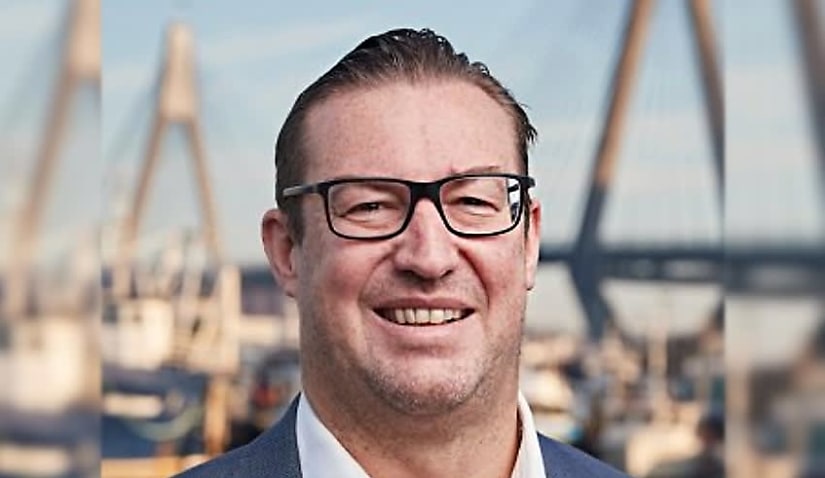Powered by MOMENTUM MEDIA
Legal services panels can be more successful when individuals are briefed by legal panels as opposed to firms, according to one GC.

Michael Guilday is the general counsel for the Sydney Fish Market. Speaking recently on The Corporate Counsel Show, he discussed how and why firms’ legal services panels can be more diverse by briefing individuals.
“We genuinely look at people that have the right experience, but the primary attribute at the end of the day that I look for is people that have a strong desire to work with us and are prepared to spend the time on their own account to invest in the relationship, to invest in learning about what we do, how we do it, and what challenges we face,” he explained.
“I find that those people who genuinely are interested in what we do, because not everyone is, and that’s fine, but we’re very fortunate that we do find people that are really passionate about what we do here at the Sydney Fish Market. I’m very fortunate that I have an opportunity to work with people like that. It really just comes down to the relationship.
“I think in the past, I would’ve said more things around technology and things like that, and large law firms might have had an edge with better systems and better access to legal research and things like that, but I’m finding those things are much more ubiquitous now. I think most people have pretty good tech. Most people can get access to very sophisticated legal precedents and research resources.”
This method of briefing individuals rather than firms is still in early days — but Mr Guilday said that with other industries going through “huge changes”, legal is likely to follow suit.
“What I look to a lot is other industries, and I try to compare what’s been going on in the legal profession with what’s going on in other industries. For example, my wife works in financial services and she works for one of the large banks, and the referral model that those larger financial institutions have isn’t as strong as what it used to be. There are huge changes going on in those organisations around how they’re structuring themselves,” he said.
“I just look at other industries and then try and reflect on what that means for the legal profession and law firms. I think lawyers can’t assume that they’re not going to be the subject of that kind of disruption as well, and if anything, the legal industry tends to run a bit behind some other industries in this regard. So, I think we’re probably yet to see how this is going to play out, but I do wonder how strong the old referral system is.”
To implement this sort of practice, Mr Guilday said that in terms of removing unconscious bias, he’s found that those who are interested in working with the Sydney Fish Market enough to compete for it are generally “good people to work with”.
“I’ve needed to be courageous around making some decisions on going to different providers, forming relationships with new people, being prepared to give that a go, being prepared to back them, back the decisions that I’ve made. I’ve found that to be incredibly successful, but it takes a little bit of courage to move away from those safe havens where we all feel safe,” he added.
“I used to hear from people, ‘Oh, well, if you use these lawyers on a matter, then no one’s ever going to criticise you.’ I don’t think that holds true anymore. I think if the lawyers don’t perform well, then you will be criticised. It doesn’t matter which firm it is. So, I think it’s increasingly important to spend the time and learn who’s out there, who are the real change makers, and give people a chance.”
Therefore, as the legal industry and briefing practices evolve moving forward, firms will likely have to compete more against individuals, outlined Mr Guilday.
“I think the ones that will be most successful are firms that are genuinely listening to their clients. The requirements of every client are going to be different, and obviously, for firms of any type, clients are their most important resource. I know that from when I started practising to where things are today, client feedback now is very sophisticated, and I think the firms that invest the time in listening to their clients, that do the work, are ultimately the ones that are going to be more successful,” he said.
“There’s always going to be a role for the larger firms, and there’s always going to be a role for the smaller firms and everyone else in between. It’s just not a one-stop shop anymore. I think that what the future looks like is there’s going to be increasingly opportunities for other lawyers to branch out on their own, and we’re going to see a lot more of that, just as we’ve seen fragmentation in all types of other industries. I think it’s something that’s going to be really interesting to watch how that all evolves.”
The transcript of this podcast episode was slightly edited for publishing purposes. To listen to the full conversation with Michael Guilday, click below:
We're evolving — and so should your insights. Heads up — Lawyers Weekly is going premium from 1 May for just $5 a month. Stay informed without missing a beat. More information coming soon.

Lauren is a journalist at Lawyers Weekly and graduated with a Bachelor of Journalism from Macleay College. Prior to joining Lawyers Weekly, she worked as a trade journalist for media and travel industry publications and Travel Weekly. Originally born in England, Lauren enjoys trying new bars and restaurants, attending music festivals and travelling. She is also a keen snowboarder and pre-pandemic, spent a season living in a French ski resort.